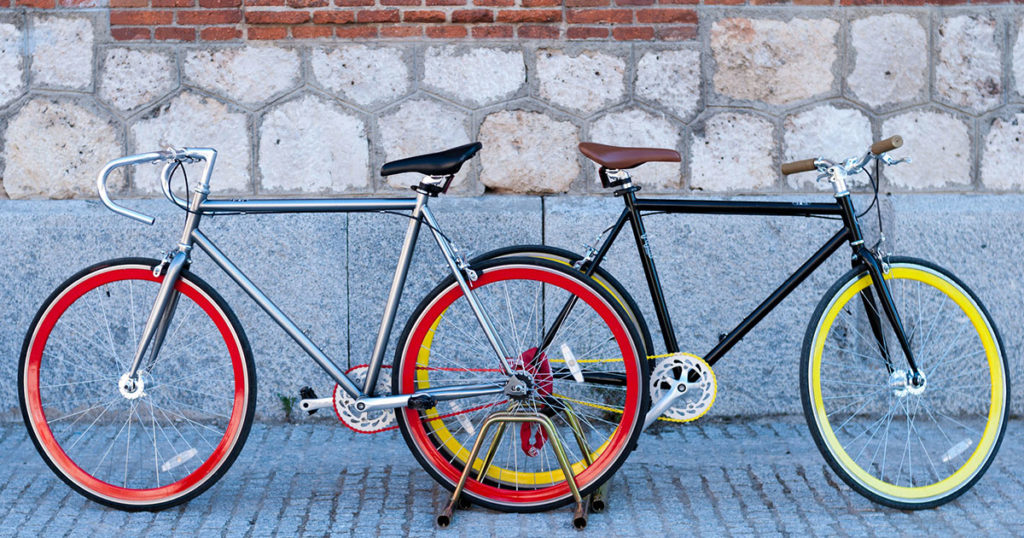
Bike sales all over the world burgeoned this past spring and summer, due to the new coronavirus. My dad, who turns 85 tomorrow, ordered one online as so many people did, though his was a motorized trike, to give him an easy means of getting around town. During the spring, when I in Spain was still confined to my house and he was keeping to his in Durango, Colorado, my first question on our weekly video chat was whether his trike had arrived. One day in July it finally did, and soon my dad, with some help, had it out of the box and assembled. Then he began to learn to ride it.
Knowing how to ride a bike is a good start, but a bike and a trike handle differently, beginning with the steering. On a bike you can guide with your weight. You lean into a curve. But on a trike you had better not or you risk tipping over. That wasn’t all. Instead of the aluminum model he’d wanted, my dad received the heavy steel one, which has a lot of weight behind it. He was on a Hummer, not a VW bug. The electric motor is very powerful with no way of limiting the maximum speed or setting a desired one, such as a cruise control allows you to do in a car. The trike can race away with you if you’re not careful. And something like that is the worry. What to do?
When my father-in-law was my dad’s age, mid-80s, he lived in Madrid, and when he went out on his errands, he sometimes tired. Someone else might look about for a bench to rest on, but Luis preferred to have his fix always at hand. So he fashioned a conveyance by removing the pedals and chain from a small bike, with the plan of taking it onto the streets, sitting astride it and powering the bike with foot strokes, as you would on a scooter. When tired, he could just stop, seated with feet firmly on the ground, waiting for his energy to return.
It turned out to be an imperfect solution, because getting into position required some dexterity. Here at my house in Gijón on a visit, he demonstrated. Without going outside the gate or working up any speed, he managed to scare me considerably. Did he ever take his invention onto the sidewalks of Madrid? I can’t remember. There, among children, delivery workers pushing upright dollies, customers lounging at tables outside bars, and shoppers with their bags, how useful would it have been? As a means of locomotion, perhaps not very, but as a way to break the ice with someone sharing the sidewalk with him, I bet it worked just fine. Nothing made Luis happier than explaining the use of a gadget, unless it was recounting the origin of the idea behind it. Think of him as old or eccentric—he wouldn’t have cared. In some ways, old and eccentric was what he’d been practicing for years. For half his life. He kept improving. My dad, on the other hand, prefers to fit in with his fellows, not stand out. But as he advances farther and farther out on the limb of age, that’s harder and harder to manage. He still sports his jaunty tweed cap, but he’s bent now, uses a back brace and a walking stick, and he’s got a shuffling gait. Unless he’s on his trike. A bystander might gawk, but I hold my breath. Please don’t fall. Not from the trike, not from anywhere. But he did, and he got back up, to resume his place on the limb, but a little farther out.


